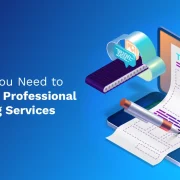
What Does a Curriculum Specialist Do?
Good teachers are the unsung heroes of the world. Yet, as the educational system evolves to meet the industry’s higher demands, so does the effort and commitment on their part.
After a point, this can take a toll on anyone, and experienced educators may find themselves seeking new career paths. Being a Curriculum Specialist could be a viable option if you are at these crossroads. This career path will allow you to be integral to students’ education beyond the classroom.
This article will explain what it means to be a Curriculum Specialist and explore this role’s essential skills, responsibilities, challenges, and opportunities.
Table of Contents:
- What Does a Curriculum Specialist’s Job Entail?
- What Are the Roles & Responsibilities of a Curriculum Specialist?
- The Prerequisites to Becoming a Curriculum Specialist
- What is the Salary of a Curriculum Specialist?
- Summing it Up
What Does a Curriculum Specialist’s Job Entail?
By definition, a Curriculum Specialist’s job as a professional is to design, implement and evaluate curriculum plans to align with the learning goals of a specific institution.
This can include developing new curricula or making suggestions to the administration to improve the current curricula based on extensive research. In some cases, their duties can also involve providing educators with constructive feedback on their implementation of the improved curricula.
Curriculum specialists are also called instructional coordinators or instructional specialists interchangeably, and this job role can involve working on a k-12 curriculum and higher education solutions. It can even extend to elearning in education.
What Are the Roles and Responsibilities of a Curriculum Specialist?
A Curriculum Specialist is indispensable in ensuring that students receive a high-quality education that prepares them for the future. When it comes to their roles and responsibilities, they can be broadly categorized into two primary sections.
This First Set of Responsibilities Revolves Around the Curriculum Itself.
This includes duties such as:
- Analyzing student test data to identify areas that require improvement
- Assessing curriculum standards and having discussions around them with the school staff
- Work on developing or improving the current curricula
- Reviewing and suggesting relevant reading material or textbooks to enhance the standard of education
A Curriculum Specialist’s Second Set of Expectations Revolves Around Implementing These Improvements.
These include:
- Meticulously planning and conducting training sessions and workshops with educators
- Recommending the implementation of new technologies and teaching techniques
- Training and mentoring educators and instructional staff to improve their skills and knowledge of new content or programs
With the recent shift towards digital education, curriculum specialists will also need to work with digital curriculum providers to ensure that they meet the state and/or national guidelines prescribed.
The Prerequisites to Becoming a Curriculum Specialist
The role of a Curriculum Specialist requires a unique set of skills and qualifications and prior experience in the field of education. This section will break down each prerequisite to give you the clarity to decide if you have what it takes excel in this role.
Essential Skills Required to Become a Curriculum Specialist
The role of a Curriculum Specialist demands a broad range of skills to perform the job duties effectively. Therefore, besides educational qualifications and significant classroom experience, a curriculum specialist’s skills must include the following to excel in this role.
- Leadership: Effective leadership enables Curriculum Specialists to effectively guide educators to implement innovative strategies that inspire and motivate students toward learning.
- Communication: Communication skills are critical for Curriculum Specialists, as they must be able to communicate implementation and changes in curriculum or instruction to everyone involved from diverse backgrounds, different age groups, and varying levels of experience.
- Decision-making: Besides leadership and communication skills, Curriculum Specialists must have excellent decision-making abilities to make informed choices about instructional methods and curriculum materials. This requires the ability to evaluate data, identify areas for improvement, and select the most appropriate strategies to address them.
- Critical Thinking: Moreover, Curriculum Specialists must have excellent analytical skills. This job role primarily requires them to analyze student data, the current teaching strategies, and the curriculum, after which they are expected to make recommendations based on their analysis. This involves an in-depth understanding of the educational system and developing effective strategies to improve student outcomes.
Qualifications Required to Become a Curriculum Specialist
Candidates must meet specific educational requirements to be eligible to apply for this role.
Employers typically require candidates to hold a master’s degree in education or curriculum and instruction. However, some employers may only require a bachelor’s degree.
In addition to a degree, employers almost always require a state-issued teaching certificate to ensure that candidates have met the necessary criteria for teaching in the state. This certificate demonstrates that the candidate has completed the required coursework and has passed any necessary exams related to teaching in the state. Certain institutions may also need a state-issued education administrator certificate.
Educational requirements may vary between States. The state’s Board of Education would be the best place to check the specifics of the state you are in.
Prior Experience Required for the Role of Curriculum Specialist
Prior teaching experience is essential to apply for a role as a curriculum specialist. The reasons behind this are twofold.
First, a crucial part of the job involves assessing teachers’ performance using observation and data analysis. Theoretical knowledge alone cannot develop the insights to perform these tasks effectively.
Second, teachers are often more receptive to constructive criticism from someone with a practical understanding of the profession and who is more experienced than them rather than someone who solely has a theoretical background.
What is the Salary of a Curriculum Specialist?
As per the Bureau of Labour Statistics, as of May 2021, the average salary of a Curriculum specialist was $63,740.
Summing it up
Curriculum specialists are vital in shaping the educational experience of students. This role is perfect for those with a passion for improving our education systems and a desire to aid in the professional development of educators. If you possess the skills, qualifications, and experience, this could be one of the most fulfilling jobs outside of a classroom.
Hurix’s Digital Higher Education Solutions offers cutting-edge technology and innovative teaching strategies to help institutions provide a seamless learning experience to their students.
As the world of education rapidly evolves, Hurix’s solutions offer a comprehensive and dynamic platform for higher education institutions to stay ahead of the curve.
Contact Hurix today to learn how their digital solutions can transform your institution’s approach to education.
Also Read: How to Find the Right Curriculum Development Service Provider

Senior Vice President
A Business Development professional with >20 years of experience with strong capability to sell new solutions and develop new markets from scratch. New Market Entry Specialist with experience working in the largest emerging markets. Exceptional experience in conceptualizing, ideating and selling new learning technologies like VR AR, etc. across multiple industry verticals.





